May 23, 2025 | 18:38 GMT +7
May 23, 2025 | 18:38 GMT +7
Hotline: 0913.378.918
May 23, 2025 | 18:38 GMT +7
Hotline: 0913.378.918

Seafood exports of Bac Lieu province in the first 9 months reached over US$ 527 million. Photo: Trong Linh.
The aquaculture, fishing, and seafood export situation in Bac Lieu province was predicted to face many difficulties and challenges due to the influence of the Covid-19 epidemic. However, due to the proactive and flexible response, the productivity, aquaculture output, and seafood export continued to be maintained, contributing to the unexpected successes of Bac Lieu's seafood industry this year.
2021 is the fourth year Bac Lieu province implements Resolution 120 on sustainable development of the Mekong Delta in response to climate change. Agriculture in Bac Lieu province has made positive changes and breakthroughs. In particular, the province has identified five pillars of economic development in the last term.
Firstly is agricultural development, focusing on high-tech application agriculture, improving shrimp and rice production.
Second is industrial development, focusing on clean energy, renewable energy, including wind power, solar power, and gas power.
The third is to develop tourism, trade, and services.
The fourth is to develop high-quality medical care.
The fifth is marine economic development associated with national security and defense.
Bac Lieu determined that fishing and aquaculture play a crucial role in the province's socio-economic development.
Specifically, right from the beginning of the year, Bac Lieu's agricultural industry has set a target to export seafood to reach US$ 1 billion. However, due to the impact of the Covid-19 pandemic, Bac Lieu province has changed its seafood export target to reach US$ 850 million in 2021.
Mr. Pham Van Thieu, Chairman of Bac Lieu Provincial People's Committee, said that the province is determined to realize the "dual goal" of maintaining economic growth and doing well ineffective Covid-19 prevention and control. Therefore, it is the central task of the whole political system.
In addition, Bac Lieu has been aware of the impacts and challenges of climate change, thereby proactively restructuring agriculture. Simultaneously, the province also develops scenarios based on the local situation to respond to climate change proactively.
In recent years, the fisheries sector of Lieu province, especially the shrimp sector, has received special attention from the Government. In the future, Bac Lieu province will invest in developing the shrimp industry into a spearhead economic sector.
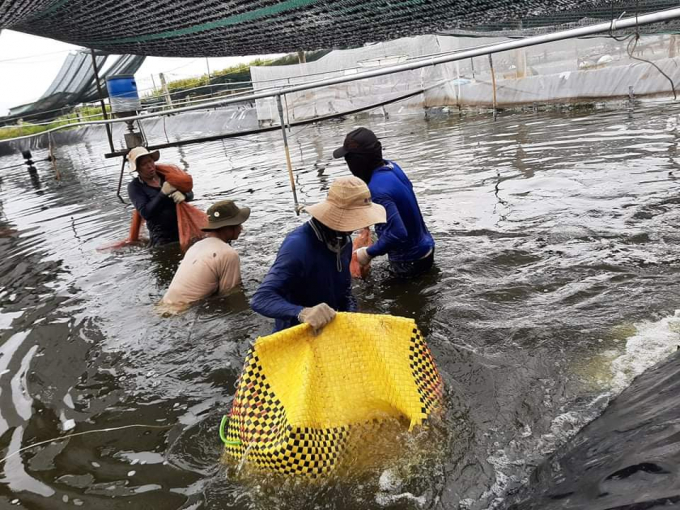
Many shrimp farming businesses and households are granted food safety and hygiene certificates. Photo: Trong Linh.
The whole province of Bac Lieu shrimp farming has a coastline of about 56 kilometers, extending across Bac Lieu city and Hoa Binh and Dong Hai districts. With the characteristics of the interlaced canal system, typical of the Ca Mau peninsula, it is very convenient to bring saltwater to the field. Therefore, the province's shrimp farming thrives in all 7 district and provincial administrative units. Shrimp farming in Bac Lieu developed enormously in the 2000s.
To implement the project of restructuring agriculture towards increasing added value and sustainable development, Bac Lieu province focuses on building and developing large-scale specialized shrimp farming areas in the form of concentration, farm-scale, traceability, and assurance of food safety and hygiene criteria.
In particular, the closed-loop, high-tech shrimp farming model from water filtration, breed production, to commercial shrimp farming all apply the most advanced technology.
According to Mr. Thieu, during epidemic prevention and control, businesses are the priority objects. In particular, the province has priorities for the seafood industry in the context of the Covid epidemic, such as ensuring 2 Covid vaccinations for workers, ensuring the maximum number of workers.
In the first nine months of the year, seafood enterprises have contributed to Bac Lieu province's seafood export value with more than US$ 527 million.
In 2021, Bac Lieu province had nearly 140,000 hectares of farmed shrimp. The leading units in high-tech shrimp farming in the province are Vietnam - Australia Group, Long Manh One Member Co., Ltd., Truc Anh Production and Trading Co., Ltd., Huy Long An - Silver Co., Ltd. Lieu, CP Livestock Joint Stock Company Vietnam - Bac Lieu Branch.
Although facing difficulties due to the impact of the Covid-19 epidemic, enterprises' production and business activities were halted. Still, with their efforts and the drastic support of the functional sector, Bac Lieu province has removed difficulties in purchasing, processing, and exporting seafood.
Besides, Bac Lieu province continues to create favorable conditions for export enterprises to increase the quantity. Bac Lieu also actively expands seafood export markets, in which Australia is considered a potential export market of the province.
Currently, Bac Lieu province has issued many mechanisms and policies to call for investment and the application of high technology. As a result, many businesses and farmers are certified to meet international standards in aquaculture, ensuring the requirements and quality of raw materials for seafood processing and export.
Luu Hoang Ly, Director of Bac Lieu Department of Agriculture and Rural Development, said that although agricultural production kept growing due to the impact of the Covid-19 epidemic, it had a significant effect on product development.
To share difficulties with farmers, Bac Lieu province has implemented many solutions to support farmers in the production, harvesting, transportation, and consumption of agricultural products, contributing to reducing disruptions and production chain breaking.
Translated by Ha Phuc
/2025/05/22/5250-1-184853_288.jpg)
(VAN) According to a representative from the Central Retail Vietnam, Vietnamese products such as seafood, sweet potatoes, dragon fruit, coffee, and spices hold great potential in the Thai market.
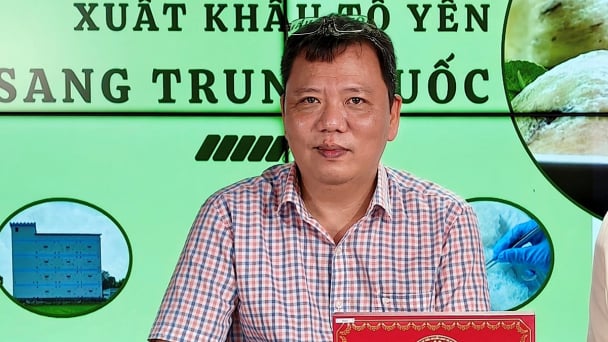
(VAN) A multi-channel, multi-directional strategy only works when the agricultural value chain meets global transparency and SPS standards.
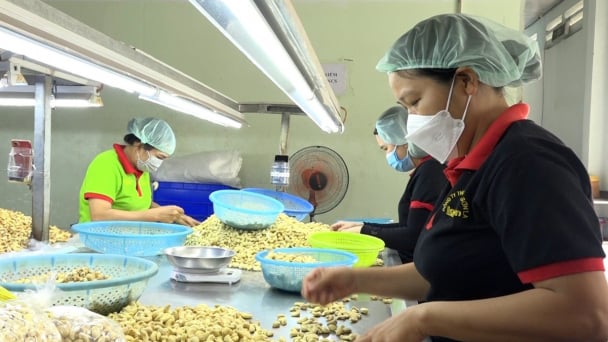
(VAN) Market expansion is a matter of survival for Vietnamese businesses amid fierce competition and global supply chain fluctuations.
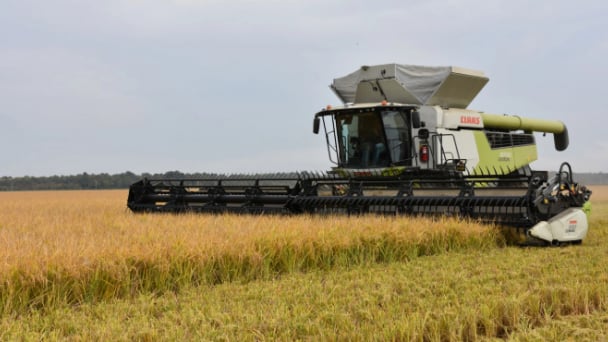
(VAN) Global market prospects for U.S. long-grain rice for the upcoming marketing year.
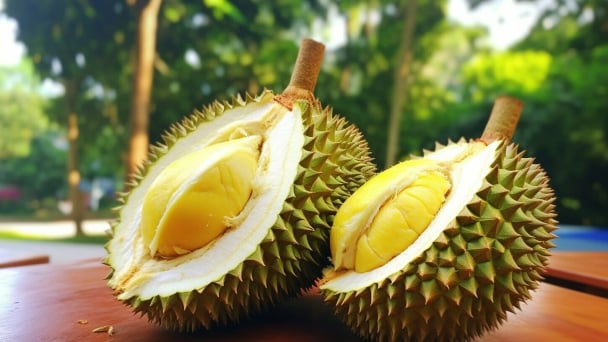
(VAN) China’s General Administration of Customs started permitting fresh durian shipments from Cambodia after a phytosanitary protocol was signed with the Cambodian Ministry of Agriculture in late April.
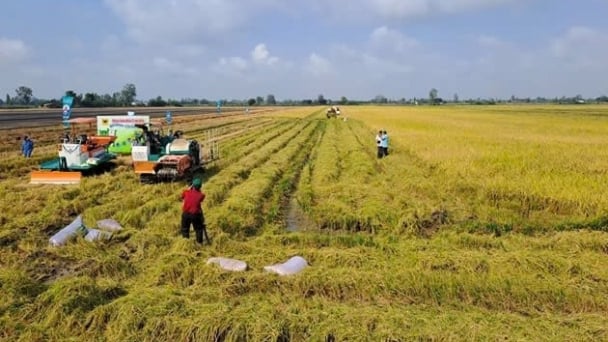
(VAN) To operate carbon market, one of the key issues is determining which types of 'commodities' meet the standards to be traded on the market.
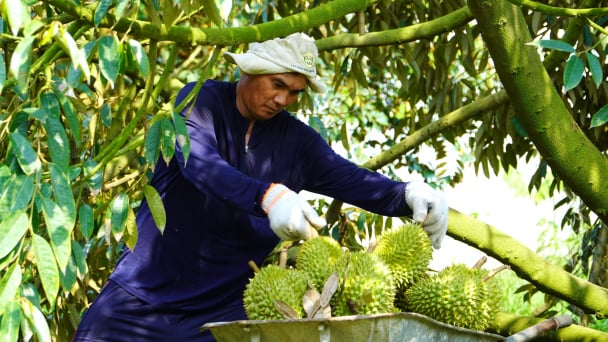
(VAN) Durian-producing localities need to coordinate more effectively with central authorities to improve the traceability, monitoring, and response systems in case of violations.